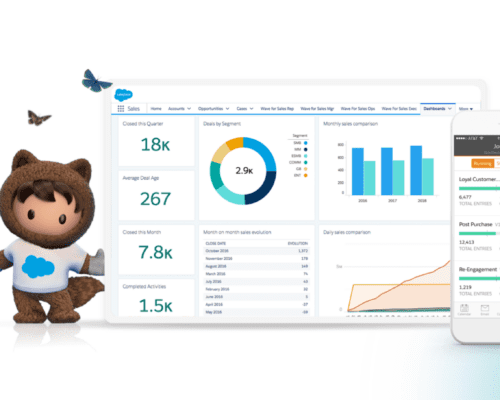Tom Laidlaw of Frieze and Hideki Hashimura of redk recently unpacked the complexities of AI in marketing and CRM on redk LIVE. Their conversation shed light on the current landscape, where sophisticated algorithms and data-driven customer insights are becoming crucial for marketing strategies. As Chief Digital Officer and CMO, Tom and Hideki bring a wealth of knowledge and experience to the table. This podcast provides a roadmap for businesses ready to harness the power of AI while navigating its challenges and leveraging its full potential.
Watch the full podcast episode here.
The Challenge of Executing Executive AI Enthusiasm
Executives often envision AI as a game-changer for marketing strategies, picturing a future where AI seamlessly propels efficiency and innovation. The enthusiasm at this level is driven by the desire to stay ahead in a competitive market and leverage AI for its data-crunching prowess and predictive analytics capabilities.
However, implementing this vision requires a pragmatic approach that considers the organisation’s culture, the team’s technical skills, and the potential impact on current roles. Effective leadership bridges the excitement from the top with the realistic operational capabilities of the team, ensuring that the transition to AI-driven processes is smooth and well-received.
Our latest report on AI in marketing explores the AI trust gap further. You can read the full report here.
Digital Maturity: The Foundation for AI Implementation
For AI to deliver on its promises, organisations must first reach a certain threshold of digital maturity. This involves more than the necessary budgets; it calls for a foundational digital infrastructure, an innovative culture that embraces change, and a clear understanding among all staff of how AI tools can support and enhance their work.
Digital maturity also means having the foresight to invest in training and development so that when AI tools are implemented, the team is ready to use them and can maximise their potential to deliver results.
The Pivotal Role of Data Governance and Cleanliness
Data is the fuel that powers AI engines, and its quality is critical. Without clean, well-governed data, AI systems cannot operate effectively. Organisations must prioritise data governance, establishing clear policies on data collection, storage, and usage that are transparent and in line with regulatory requirements.
“Clean, usable, consistent, trustworthy data is an essential starting point.” – Tom Laidlaw, Frieze
AI’s effectiveness is closely tied to the quality of input. As such, organisations must invest in systems and processes that ensure data accuracy, consistency, and cleanliness. This includes regular audits of data sources, cleansing routines, and the removal of duplicates and errors, which can significantly skew AI outputs.
Navigating B2C Data Complexities
B2C environments present unique challenges in data management due to the volume and variability of consumer interactions. In this context, AI can be instrumental in collating and analysing data from diverse touchpoints to create a coherent view of the customer journey.
Organisations must navigate the complexities of unstructured data, such as social media interactions, customer service transcripts, and online behaviour patterns. Here, AI can be employed to identify trends, segment audiences, and personalise engagements. However, this requires sophisticated data processing to normalise and clean data while ensuring it remains representative and unbiased.
Ethical AI as a Business Imperative
The rise of AI has brought ethical considerations to the forefront. Transparency of AI systems, understanding of their decision-making processes, and ensuring they do not perpetuate biases are paramount concerns. This requires a governance framework that anticipates potential ethical dilemmas and includes mechanisms for regular review and adjustment of AI systems.
Organisations must commit to ethical AI by embedding fairness, accountability, and transparency values into their AI systems. This goes beyond compliance; it is about building trust with customers and employees alike, ensuring that AI acts in ways consistent with the organisation’s principles and societal norms.
AI Literacy: A New Competency for Teams
AI literacy is quickly becoming a core competency in the modern workplace. However, there’s a common misconception that this means learning to build AI tools from the ground up. Instead, the focus should be on understanding the capabilities of AI-enhanced tools available in the market and learning how to leverage them effectively within existing business processes.
For example, Salesforce incorporates AI to enhance sales and marketing functions without requiring organisations to manage or understand the complex underlying technology. By focusing on how to apply these tools, teams can improve their operations without the need for deep technical AI expertise.
Data Literacy and Integration: Essential for the AI-Enabled Future
Data literacy extends beyond data; it encompasses comprehending the systems that manage data and the processes that ensure its quality and integrity. For AI to be effective, data must be integrated across the organisation’s operations, regularly updated, and subjected to quality checks.
“The mechanics of AI is the processing of data. And your data needs to be ready for that.” – Tom Laidlaw, Frieze
In the context of marketing, this means having a granular understanding of customer data, knowing how to interpret AI-generated insights, and ensuring that AI applications are fed with accurate and current data. This holistic view of data management is a critical success factor for integrating AI into day-to-day business practices.
The conversation between Laidlaw and Hashimura reflects a larger industry trend towards integrating AI into marketing strategies to remain competitive. Their insights guide organisations embarking on this journey, emphasising the need for a balanced approach that addresses the technological, operational, and ethical dimensions of AI deployment.
Interested in learning more about AI in marketing? Read our full report here.










